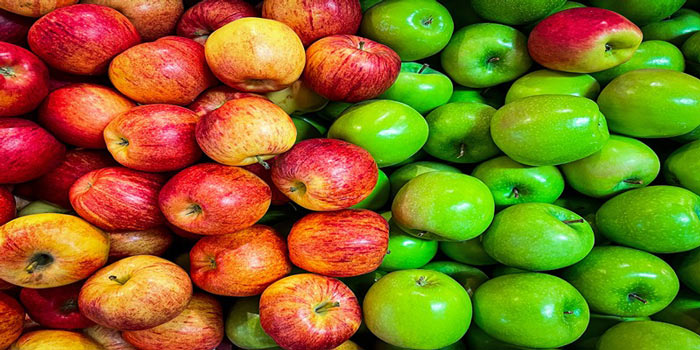In today's health-conscious society, the debate surrounding added sugar versus natural sugar holds increasing significance. As concerns about the impact of excessive sugar intake on overall well-being grow, distinguishing between these two types of sugars becomes critical for informed dietary decision-making. From sweetening our morning coffee to indulging in decadent desserts, sugar permeates various aspects of our daily lives. However, it's important to recognize that not all sugars are equal and comprehending their distinctions is paramount to maintaining a balanced and healthy lifestyle.
Differentiating Added Sugar from Natural Sugar:
Added Sugar:
Added sugars are precisely what the term implies - sugars that are incorporated into food and beverages during processing or preparation. These sugars encompass various forms, such as sucrose, high fructose corn syrup, and syrups like maple syrup and honey when introduced to foods. The primary objective behind adding sugar to food products is to enhance flavor, increase palatability, and prolong shelf life. Regrettably, added sugars contribute empty calories without providing essential nutrients, thereby emerging as a significant factor in the surge of obesity, type 2 diabetes, and other chronic diseases.
The modern diet is rife with common sources of added sugar, such as sugary beverages, baked goods, candies, processed snacks, and condiments like ketchup and salad dressings. The widespread presence of added sugars in processed foods poses a challenge in monitoring and controlling consumption levels, often resulting in unintentional overconsumption.
Natural Sugar:
Conversely, natural sugars are found in foods like fruits, vegetables, and dairy products, occurring organically. Alongside these sugars, essential nutrients such as vitamins, minerals, and fiber are present, which play a crucial role in maintaining overall health. Unlike added sugars, natural sugars are typically consumed in their whole food form, promoting slower digestion and improved regulation of blood sugar levels.
Apples, berries, and oranges are abundant in natural sugars like fructose, while dairy products are a source of lactose. Furthermore, vegetables like carrots and beets also contain natural sugars in addition to a myriad of beneficial nutrients. By consuming these foods in their unprocessed form, you can enjoy a well-rounded source of energy while promoting satiety and overall well-being.
Health Implications of Added Sugar Consumption:

The excessive consumption of added sugars has been linked to numerous adverse health effects, making it a public health concern worldwide. Here are some key implications of high added sugar intake:
- Weight Gain and Obesity: Added sugars contribute excessive calories to the diet without imparting a sense of satiety, resulting in gradual weight gain. The vacant calories derived from sugary beverages and processed snacks accumulate rapidly, thereby contributing to obesity and associated health complications.
- Type 2 Diabetes: Consistently consuming added sugars can contribute to insulin resistance, a condition that precedes type 2 diabetes. Excessive sugar intake can overwhelm the body's capacity to regulate blood sugar levels, thereby heightening the likelihood of developing this metabolic disorder.
- Heart Disease: Consuming diets that are rich in added sugars has been linked to a higher likelihood of developing heart disease and related risk factors, including high blood pressure, inflammation, and abnormal lipid levels. Overindulging in sugar can gradually lead to the emergence of cardiovascular complications over time.
- Dental Problems: Consuming sugary foods and beverages fosters the proliferation of detrimental bacteria in the mouth, which ultimately leads to tooth decay and cavities. Neglecting proper oral hygiene while indulging in excessive sugar intake can give rise to dental issues and jeopardize oral well-being.
The Role of Natural Sugars in a Healthy Diet:
While added sugars pose significant health risks, natural sugars obtained from whole foods play a vital role in a balanced diet. Here's why natural sugars should be embraced as part of a healthy eating pattern:
- Nutrient Density: Foods that are naturally sweet are usually abundant in vital nutrients like vitamins, minerals, and antioxidants. Including fruits, vegetables, and dairy products in your diet offers a diverse range of health-promoting compounds that contribute to overall well-being.
- Fiber Content: Several naturally sugary foods also provide dietary fiber, which contributes to digestive health, regulates blood sugar levels, and aids in weight management. Fiber helps slow the absorption of sugars, preventing sudden increases in blood glucose and promoting a feeling of fullness.
- Satiety and Portion Control: Whole foods that are naturally sweet are typically more satiating and satisfying than processed foods that are loaded with added sugars. By incorporating a diverse range of fruits, vegetables, and dairy products into your meals and snacks, you can effectively curb cravings and avoid overeating.
- Balanced Energy: The natural sugars found in whole foods offer a consistent supply of energy, avoiding sudden spikes in blood sugar levels. This steady release of energy not only enhances physical performance and mental concentration but also promotes overall well-being and vitality.
Tips for Reducing Added Sugar Intake:

Reducing added sugar consumption doesn't mean sacrificing taste or enjoyment. Here are some practical strategies for minimizing added sugars in your diet:
- Read Food Labels: Maintain a vigilant approach to reading ingredient lists and nutrition labels in order to identify concealed sources of added sugars in packaged foods. Opt for products that have minimal to no added sugars or consider alternatives that utilize natural sweeteners such as stevia or monk fruit. By doing so, you can make informed choices while ensuring the quality and eloquence of your dietary selections.
- Limit Sugary Beverages: Reduce your consumption of sugary sodas, fruit juices, energy drinks, and sweetened teas as they significantly contribute to added sugar intake. Instead, choose water, herbal teas, or sparkling water with a hint of citrus for a refreshing and hydrating alternative.
- Choose Whole Foods: Center your diet around whole, minimally processed foods like fruits, vegetables, whole grains, lean proteins, and dairy products. These nourishing choices are packed with essential nutrients and natural sugars, promoting optimal health and vitality.
- Experiment with Natural Sweeteners: Enhance your recipes by substituting refined sugars with natural sweeteners such as fresh fruit, unsweetened applesauce, dates, or pureed sweet potatoes. These wholesome alternatives bring sweetness and richness to your dishes, without the negative effects of added sugars.
- Prepare Meals at Home: Preparing meals from scratch grants you the power to oversee the ingredients and lessen dependence on processed foods infused with excessive sugars. Unleash your creativity in the culinary domain by crafting homemade sauces, dressings, and desserts using whole food components and limited sweeteners.
Conclusion:
In the ongoing debate between added sugar and natural sugar, it is crucial to understand their distinct roles and health implications in order to make informed dietary choices. While added sugars, such as those found in processed foods and beverages, can contribute to various chronic health conditions when consumed in excess, natural sugars obtained from whole foods, like fruits and vegetables, offer valuable nutrients and benefits for overall well-being. Natural sugars are accompanied by fiber, vitamins, minerals, and antioxidants that contribute to a well-rounded and nutritious diet.




